


In this issue, read about a hot-tub-based research study, a new program for family doctors, and the complexities of looking at SCI data. Plus a recap of a fun event, overviews of publications, and more!
We hope you enjoy these feature stories:
- Passive heat therapy for cardiovascular health
- Primary care and SCI: filling the knowledge gap
- Future scientists come to ICORD
- SCI incidence and prevalence in Canada
- seed2STEM program expands
- Social determinants of health in SCI
And these regular columns:
Researchers investigate passive heating to improve cardiovascular health in people with SCI
By James Laskin and Jocelyn Chan
 Drs. Jaimie Borisoff and James Laskin have received a Seed Grant to explore the potential benefits of passive heat therapy! The $20,000 grant, supported by the Rick Hansen Foundation, will help the team investigate how controlled heat exposure or passive heating might improve cardiovascular health in people living with higher-level SCI. Drs. Victoria Claydon and Christopher Minson are co-investigators on the project.
Drs. Jaimie Borisoff and James Laskin have received a Seed Grant to explore the potential benefits of passive heat therapy! The $20,000 grant, supported by the Rick Hansen Foundation, will help the team investigate how controlled heat exposure or passive heating might improve cardiovascular health in people living with higher-level SCI. Drs. Victoria Claydon and Christopher Minson are co-investigators on the project.
The study is motivated by the heightened risk of cardiovascular disease in individuals with SCI. Since there are limited exercise options available for people with higher-level injuries, Drs. Borisoff and Laskin are proposing a simple yet potentially effective intervention: passive heat therapy through full-body hot water immersion, or ‘hot tub therapy’. This approach has shown promise in other populations for its ability to improve various health markers, including vascular function, metabolism, and immune response, to complement physical exercise.
 The researchers aim to recruit 16 participants for a trial to assess the safety, tolerance, and potential health benefits of a 45-to-60-minute hot tub session, conducted at PARC. This pilot project is the first step towards understanding whether such a therapy could be a feasible, home-based health improvement strategy for individuals with SCI.
The researchers aim to recruit 16 participants for a trial to assess the safety, tolerance, and potential health benefits of a 45-to-60-minute hot tub session, conducted at PARC. This pilot project is the first step towards understanding whether such a therapy could be a feasible, home-based health improvement strategy for individuals with SCI.
Interested in participating? Keep your eye out for new studies on our recruitment webpage.
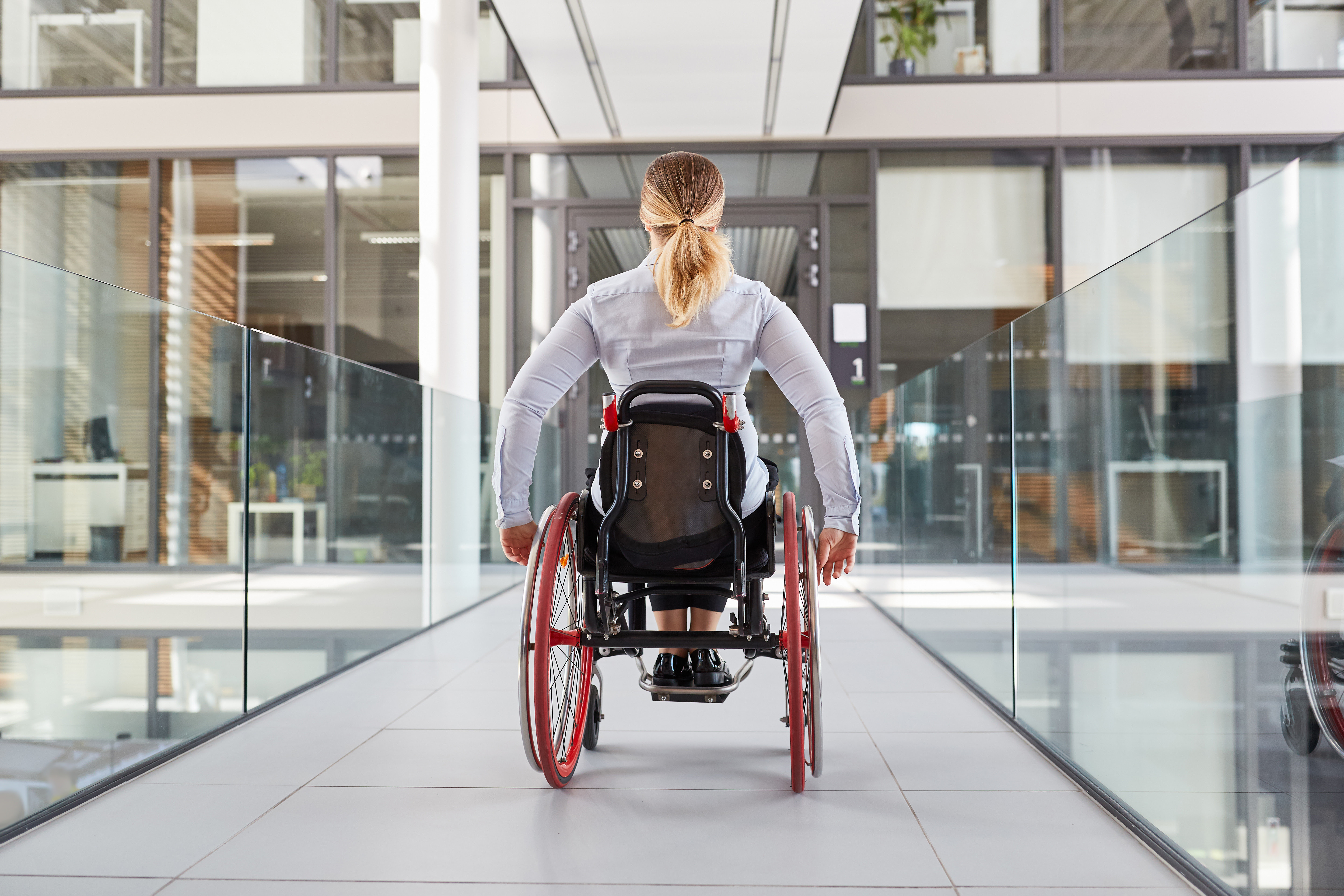
Primary care and SCI: filling the knowledge gap
By Matthew Querée
With approximately 13,000 people with SCI living in BC, and approximately 4,000 family doctors, it is likely that your family doctor, also known as a general practitioner (GP), has three or fewer people with SCI in their practice. With so few patients, it is also likely that they are unfamiliar with the complexities of SCI and how it compromises your health. You may have even had the experience of your family doctor not recognizing your spikes in blood pressure or not understanding why you regularly get urinary tract infections.
Research in this area confirms a knowledge gap; some studies suggest that approximately 72% of people with SCI have unmet needs from their primary care providers and that the unmet needs are often greatest among those with the poorest health and lowest incomes (Van Loo et al. 2010; Beatty et al. 2003).
The SCIRE team, along with SCI-BC and the Department of Family Practice, Faculty of Medicine at UBC, are hoping to close this knowledge gap.
A special Primary Care section has been created on SCIRE with brief information and resources on SCI necessary for family doctors to know about in their general practice (including Autonomic Dysreflexia, Orthostatic Hypotension, Cardiovascular Health, Bladder, Bowel, and Skin Health). Later in 2024, we are planning to add new sections in Respiratory Health and Pain Management.
Co-led by Dr. Janice Eng, ICORD PI and Director of the Rehab Research Program, Co-director of the Centre for Aging SMART, and Dr. Rob Petrella, Head of Department of Family Practice, Faculty of Medicine at UBC, the SCIRE team successfully applied to Michael Smith Health Research BC for a REACH grant, a competition designed to aid researchers in Knowledge Translation. With this funding, SCIRE is running a series of continuing medical education  events entitled “Primary Care and SCI: What Do I Need to Know?”. Top GF Strong physiatrists will be offering their expertise so that family doctors can learn about SCI and its key complexities that will ultimately help them to treat their patients with SCI more effectively.
events entitled “Primary Care and SCI: What Do I Need to Know?”. Top GF Strong physiatrists will be offering their expertise so that family doctors can learn about SCI and its key complexities that will ultimately help them to treat their patients with SCI more effectively.
The 4 sessions will all be virtual, and take place from 8am – 9am so that doctors may attend before opening up their clinics for the day. The sessions are:
- Cardiovascular Health and SCI – Dr. Andrea Townson – April 18
- Blood Pressure and SCI – Dr. Andrei Krassioukov – May 1
- Bladder Health and SCI – Dr. Viet Vu – May 7
- Skin Health and SCI – Dr. Rhonda Willms – May 15
What Can I Do?
People with SCI: Let your GP know that these sessions are happening! Print out this flyer and take it to your GP’s office at your next appointment. Even if your family doctor is up to speed on SCI, they may have a colleague who has questions.
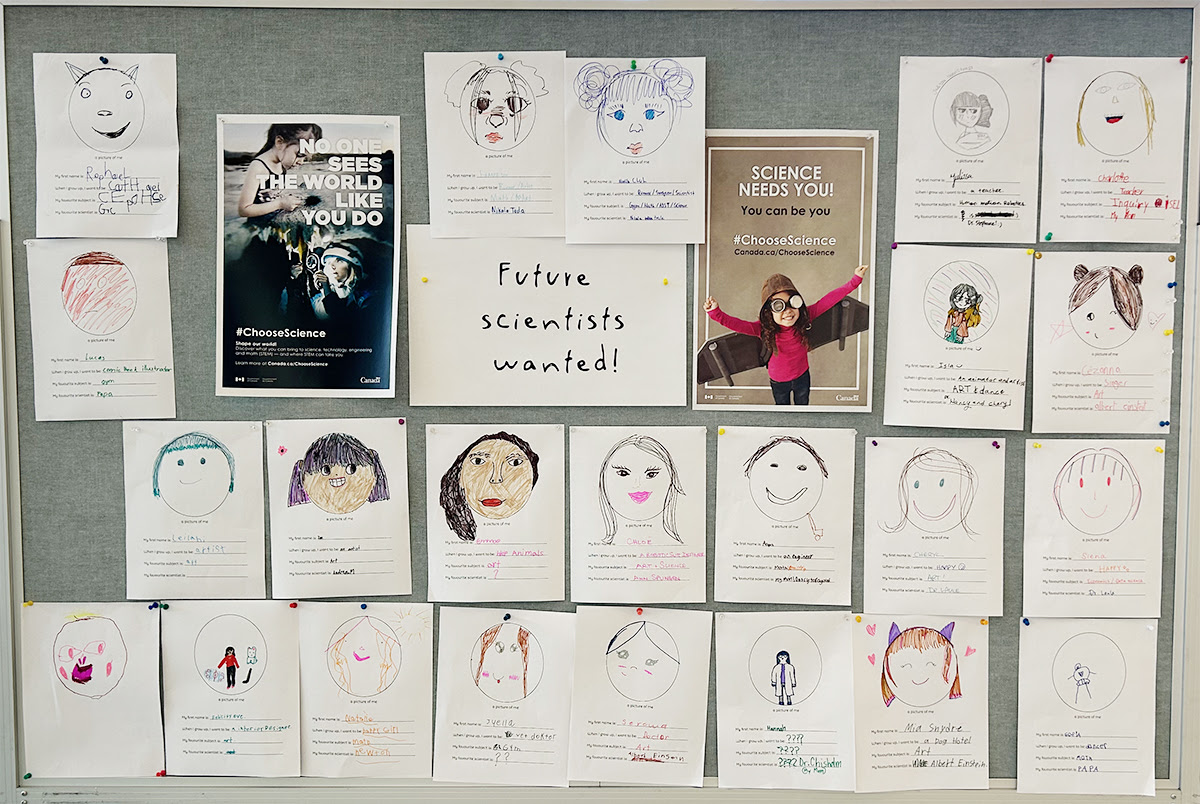
ICORD welcomes future scientists
The atrium of the Blusson Spinal Cord Centre was filled with excited and curious future scientists on Friday, February 9 as ICORD hosted a celebration of the UN International Day for Women and Girls in Science.
More than 100 guests visited displays and fun interactive demonstrations by ICORD’s Tetzlaff and Lam Labs, Vancouver Coastal Health Research Institute, Gynecologic Cancer Initiative, Geering Up, SCWIST, and Human in Motion Robotics.
“This day is an opportunity to promote equal access to and participation in science. As you all know, women and girls play a critical role in science, tech, engineering and mathematics communities and their involvement should be strengthened. We are underrepresented in these careers and that impacts the type of research that takes place,” said ICORD Managing Director Dr. Nancy Thorogood in her welcome address.
“In Canada, 34% of people who graduate with a STEM degree are women but only 25% of people working in STEM careers are women. I’m glad to say that here at ICORD, 44% of our PIs are female,” she added.
We hope this event inspired some thoughts about science careers! If you came to the event and would like to offer feedback, please drop us a note.

Complicated answers to simple questions
When ICORD Managing Director Dr. Nancy Thorogood was a researcher with Praxis Spinal Cord Institute, she and her colleagues worked on a study to answer two seemingly simple questions: how many people sustain a traumatic spinal cord injury (SCI) each year in Canada and how many Canadians are living with a traumatic SCI?
 The answers to these questions are epidemiological measures called incidence and prevalence. These measures are important for resource allocation for several aspects of our health care system. The incidence of many reportable diseases and conditions are determined by mandated registries (for example, types of cancer and some communicable diseases of public health interest). There is no mandated registry that captures every person who sustains a SCI in Canada. So, to answer these questions Nancy (pictured, right) and her colleagues utilized health administrative data.
The answers to these questions are epidemiological measures called incidence and prevalence. These measures are important for resource allocation for several aspects of our health care system. The incidence of many reportable diseases and conditions are determined by mandated registries (for example, types of cancer and some communicable diseases of public health interest). There is no mandated registry that captures every person who sustains a SCI in Canada. So, to answer these questions Nancy (pictured, right) and her colleagues utilized health administrative data.
In Canada, when a person is admitted to a hospital, a health record is created, and upon discharge, the facility abstracts data from the record and codes it according to the International Classification of Diseases (ICD). Facilities across Canada submit this coded data to the Canadian Institute for Health Information (CIHI), and researchers can request this data.
The study’s objective was to estimate the Canadian traumatic SCI incidence, prevalence and trends over time using this national-level health admin data. From their data request, they received anonymized data from 2005 to 2016 and could estimate out to 2019. This study involved the largest amount of national-level Canadian data published to date. Previous publications have focused on specific regions or only single provinces. Praxis’ preceding work, commonly cited in the field, estimated national Canadian SCI incidence by applying health admin data from Alberta to the Canadian population in 2010. Nancy and her colleagues wanted to update these estimates and provide provincial numbers with the current CIHI data.
It was estimated that in 2019, there were approximately 1,200 people diagnosed with traumatic SCI in Canadian hospitals, with 10% of admissions leading to in-hospital deaths, and 1,076 people with traumatic SCI were discharged from acute care. The estimated number of people living with traumatic SCI in Canada was 30,239. Trends included: a 37% increase in the number of people injured, increasing from 875 to 1,200 incident cases; an older average age at injury, rising from 47 years to 54 years; and, a larger proportion over the age of 65, increasing from 22 to 38%, during the 15-year time frame.
Due to the challenges and limitations of working with health admin data, these estimates are considered conservative (at the lower end of the range). Discussion on the finer details of the data estimates and comparisons with other published literature is covered in the paper, which can be accessed here.
We may never know the exact number of people who sustain a SCI in Canada, however it remains important to have estimates for the planning, funding, delivery, and evaluation of our health care and injury prevention strategies. The value in this work was the description of a standard reproducible method applied to a large accessible data set that can be utilized to update estimates, look at regional differences, and track trends over time in Canada.

Summer research program expands
seed2STEM, the summer research program for Indigenous youth that was started at ICORD in 2018, has received significant funding from the UBC Faculty of Medicine. A successful application to the 2023 Dean’s Strategic Investment Fund means the program will be able to expand to departments across the Faculty of Medicine for the Summer 2024 and 2025 terms.
STEM fields are critical in advancing health care and driving economic success in Canada, yet Indigenous representation in these skilled, well-paid positions remains disproportionately low. seed2STEM aims to increase Indigenous participation in STEM by offering Indigenous high school students from grades 9 to 12 paid, six-week summer research internships on a variety of STEM (science, technology, engineering, math) topics in a fun and supportive environment.
Student placements will continue in ICORD labs in Vancouver and Kelowna, as well as School of Biomedical Engineering labs in Vancouver. The Gynecological Cancer Initiative has committed to hosting and funding six students this summer, with the support of a UBC Strategic Equity and Anti-Racism Enhancement Fund grant. In addition to the support from the Faculty of Medicine and Gynecological Cancer Initiative, seed2STEM also received a generous donation from Stryker which will be used to support travel costs for students from rural communities.
Applications for Summer 2024 are currently open. Interested students, parents, and teachers are invited to a virtual info session on March 14, 1:30 to 2:30pm. Please contact us for the Zoom link.

Social determinants of health in SCI
By Jocelyn Chan and Ben Mortenson
A paper co-authored by Dr. Ben Mortenson, “Exploring the social determinants of health from the perspectives of people with spinal cord injuries: A disability studies approach,” was recently published in SSM–Qualitative Research in Health.
Social determinants of health are the non-medical factors that influence health outcomes. We can think of social determinants of health like the everyday parts of our lives—where we live, our jobs, our education—that can affect our health just as much as visiting a doctor. For example, having a supportive group of friends, or living in a safe and accessible neighbourhood, can all play a big role in our health.
In this study, 30 adults with SCI living in the community were interviewed to understand how they deal with their health and daily challenges. The study looked into their personal experiences, including dealing with pain and secondary health conditions, and how these experiences are affected by societal and physical obstacles, such as barriers in the environment and issues with getting the right healthcare. This helps researchers see how these factors influence their overall well-being.
“Historically, health was conceived as an individual attribute. Recently, there has been growing recognition of the importance of the social determinants of health, such as income, education and early childhood experience. Our paper emphasizes the way the social determinants of health frequently focus too much on the vulnerability of people with disability and neglect the social and the physical barriers that shape their health,” said Dr. Mortenson.
By recognizing and addressing these barriers, there is a pathway to significantly improve the health and well-being of those living with SCI. Positive changes can stem from increased public awareness, policy reforms aimed at enhancing accessibility and healthcare provision, and fostering inclusive communities that empower rather than exclude.
Interested in learning more? Check out the full study here.

The Gainforth Lab had a productive month, publishing two papers!
Help us do research
Interested in helping ICORD researchers make SCI preventable, livable, and curable? These research studies (and more) are in need of participants!
Recreational adaptive devices (RAD) study
![]() Researchers at UBC have partnered with RAD Society with the aim of designing outdoor programs to encourage outdoor recreational activity for individuals with mobility impairments. The purpose of this study is to understand the needs, interests, and challenges of individuals Read More…
Researchers at UBC have partnered with RAD Society with the aim of designing outdoor programs to encourage outdoor recreational activity for individuals with mobility impairments. The purpose of this study is to understand the needs, interests, and challenges of individuals Read More…
Sleep routines and sleep disturbances after SCI
 ICORD researcher Dr. Claydon, her research team at SFU, and community partner Spinal Cord Injury BC are interested in learning more about the sleep routines, disturbances, and barriers to sleep supports experienced by individuals with spinal cord injury (SCI). Read More…
ICORD researcher Dr. Claydon, her research team at SFU, and community partner Spinal Cord Injury BC are interested in learning more about the sleep routines, disturbances, and barriers to sleep supports experienced by individuals with spinal cord injury (SCI). Read More…
Push until it hurts: The impact of acute exercise on muscle-level pressure pain
![]() Researchers in Dr. Kramer’s lab are interested in better understanding how exercise impacts our pain experience. We are looking for people to attend one day of testing, which includes pressure pain measurements before and after a bout of high-intensity cycling. Read More…
Researchers in Dr. Kramer’s lab are interested in better understanding how exercise impacts our pain experience. We are looking for people to attend one day of testing, which includes pressure pain measurements before and after a bout of high-intensity cycling. Read More…
Integrating patient-centered outcomes in rehabilitation and community SCI care
![]() Patient-centered spinal cord injury care considers the needs, preferences, and values of patients. Completing self-assessment questionnaires at specific time points in treatment can help clinical teams better understand how individuals with a spinal cord injury feel and can function. Read More…
Patient-centered spinal cord injury care considers the needs, preferences, and values of patients. Completing self-assessment questionnaires at specific time points in treatment can help clinical teams better understand how individuals with a spinal cord injury feel and can function. Read More…
Neuromodulation for bladder function (SCONE clinical study)
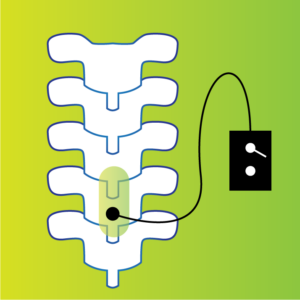 Researchers in Dr. Andrei Krassioukov’s lab are trying to understand how neurogenic lower urinary tract dysfunction (loss of bladder control) can be recovered after brain or spinal cord damage due to spinal cord injury, multiple sclerosis or stroke. See story above or visit the study page.
Researchers in Dr. Andrei Krassioukov’s lab are trying to understand how neurogenic lower urinary tract dysfunction (loss of bladder control) can be recovered after brain or spinal cord damage due to spinal cord injury, multiple sclerosis or stroke. See story above or visit the study page.
Click here to browse all the ICORD studies currently recruiting participants.
Interested in participating in ICORD research but feeling overwhelmed by the number of studies?
Our Study Liaison is here to help!
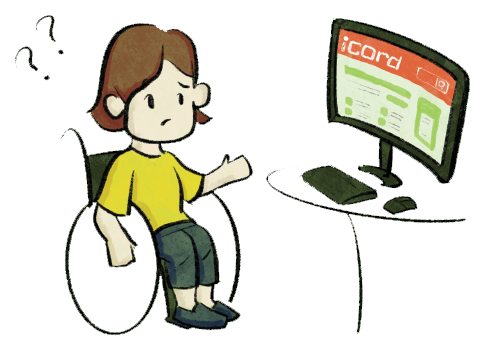
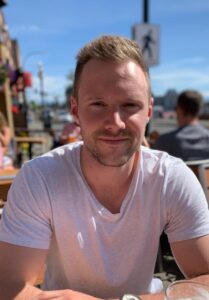 Interested in participating in ICORD research but feeling overwhelmed by the number of studies? Adam Doelman, ICORD PhD candidate and our new study liaison, will help you out. As a study liaison, Adam will work closely with you to narrow down what studies you may be eligible for. Over a few short phone calls, he will ask you questions about your research interests as well as common study inclusion and exclusion criteria. From there he will tailor a list of research studies for you and provide details and contact information for each one. He can also directly connect you with study coordinators if you like. Send him an email to begin your consultation!
Interested in participating in ICORD research but feeling overwhelmed by the number of studies? Adam Doelman, ICORD PhD candidate and our new study liaison, will help you out. As a study liaison, Adam will work closely with you to narrow down what studies you may be eligible for. Over a few short phone calls, he will ask you questions about your research interests as well as common study inclusion and exclusion criteria. From there he will tailor a list of research studies for you and provide details and contact information for each one. He can also directly connect you with study coordinators if you like. Send him an email to begin your consultation!
Partner news
 Our SCI Health Forum is back! Join us for a hybrid event March 14th from 5:30-8pm at Blusson Spinal Cord Centre for a Research Roadshow driven by ICORD researchers from UBC Okanagan, Vancouver and Victoria. Hear what’s new in SCI research, how it might help you, and how you can participate in research that benefits you. Participants in person and online will hear three engaging plain language research talks followed by a researcher Q&A, and those in person can stick around after for a research fair and dinner in the Atrium. For more information and to RSVP please email Ryan at rclarkson@sci-bc.ca
Our SCI Health Forum is back! Join us for a hybrid event March 14th from 5:30-8pm at Blusson Spinal Cord Centre for a Research Roadshow driven by ICORD researchers from UBC Okanagan, Vancouver and Victoria. Hear what’s new in SCI research, how it might help you, and how you can participate in research that benefits you. Participants in person and online will hear three engaging plain language research talks followed by a researcher Q&A, and those in person can stick around after for a research fair and dinner in the Atrium. For more information and to RSVP please email Ryan at rclarkson@sci-bc.ca
 Interested in learning how you can be involved in the health research process beyond participating as a subject? Join VCHRI for an introduction to the local health research landscape and the practice of Patient-Oriented Research (POR) that recognizes the importance of including living/lived experience throughout the research process. Hear from patients or family members who have partnered in research and ask questions about their journey. Register here.
Interested in learning how you can be involved in the health research process beyond participating as a subject? Join VCHRI for an introduction to the local health research landscape and the practice of Patient-Oriented Research (POR) that recognizes the importance of including living/lived experience throughout the research process. Hear from patients or family members who have partnered in research and ask questions about their journey. Register here.
RHF Inclusion and Accessibility Training
Join the inclusion evolution with Rick Hansen Foundation Inclusion and Accessibility Training! This one-hour, self directed, online course is designed to empower individuals and organizations with the knowledge and skills needed to create inclusive environments for all. Whether you’re a business owner, educator, or community leader, this course equips you with practical strategies to promote accessibility and foster a culture of inclusion. Join us on the journey towards a more accessible and equitable world. Enrol today!
 RHSCIR 2021
RHSCIR 2021
Take a look at the most recent RHSCIR report from Praxis Spinal Cord Institute, summarizing details on spinal cord injury types, patient demographics, care pathways, hospital stay durations, secondary complications, and the social impacts following spinal cord injuries. Read now
Praxis-led Canadian SCI Registry – RHSCIR will keep bringing together clinicians, researchers, healthcare administrators, and individuals with SCI to bridge the gap between research and clinical practice. This aims to promote evidence-based practices, enhancing outcomes for people living with SCI. Learn more.
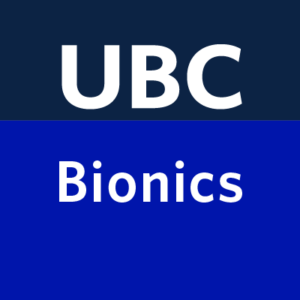 UBC Bionics is a student-led design team at the UBC. Our current project is focused on prototyping a trans-radial smart bionic arm for amputees, also known as GRASP. We are currently looking for a Vancouver-based amputee with a trans-radial (forearm) amputation or congenital malformation to pilot our project. In October 2024, we will be competing in CYBATHLON, the global bionics competition in Switzerland. You, as our pilot, will receive a fully funded trip to Zürich, Switzerland!
UBC Bionics is a student-led design team at the UBC. Our current project is focused on prototyping a trans-radial smart bionic arm for amputees, also known as GRASP. We are currently looking for a Vancouver-based amputee with a trans-radial (forearm) amputation or congenital malformation to pilot our project. In October 2024, we will be competing in CYBATHLON, the global bionics competition in Switzerland. You, as our pilot, will receive a fully funded trip to Zürich, Switzerland!
Interested in applying? Complete this interest form. You can also contact us by email at ubcbionics.outreach@gmail.
 Thanks for reading this issue of The ICORDian – we hope you enjoyed it! Please subscribe and have future issues delivered to your inbox. If you have any comments about this issue or suggestions for future ones, please contact us.
Thanks for reading this issue of The ICORDian – we hope you enjoyed it! Please subscribe and have future issues delivered to your inbox. If you have any comments about this issue or suggestions for future ones, please contact us.
|
Jocelyn Chan, James Laskin, Ben Mortenson, Nancy Thorogood, Matthew Querée, Katie Ashwell, and Cheryl Niamath for their contributions to this issue of our newsletter.
|




